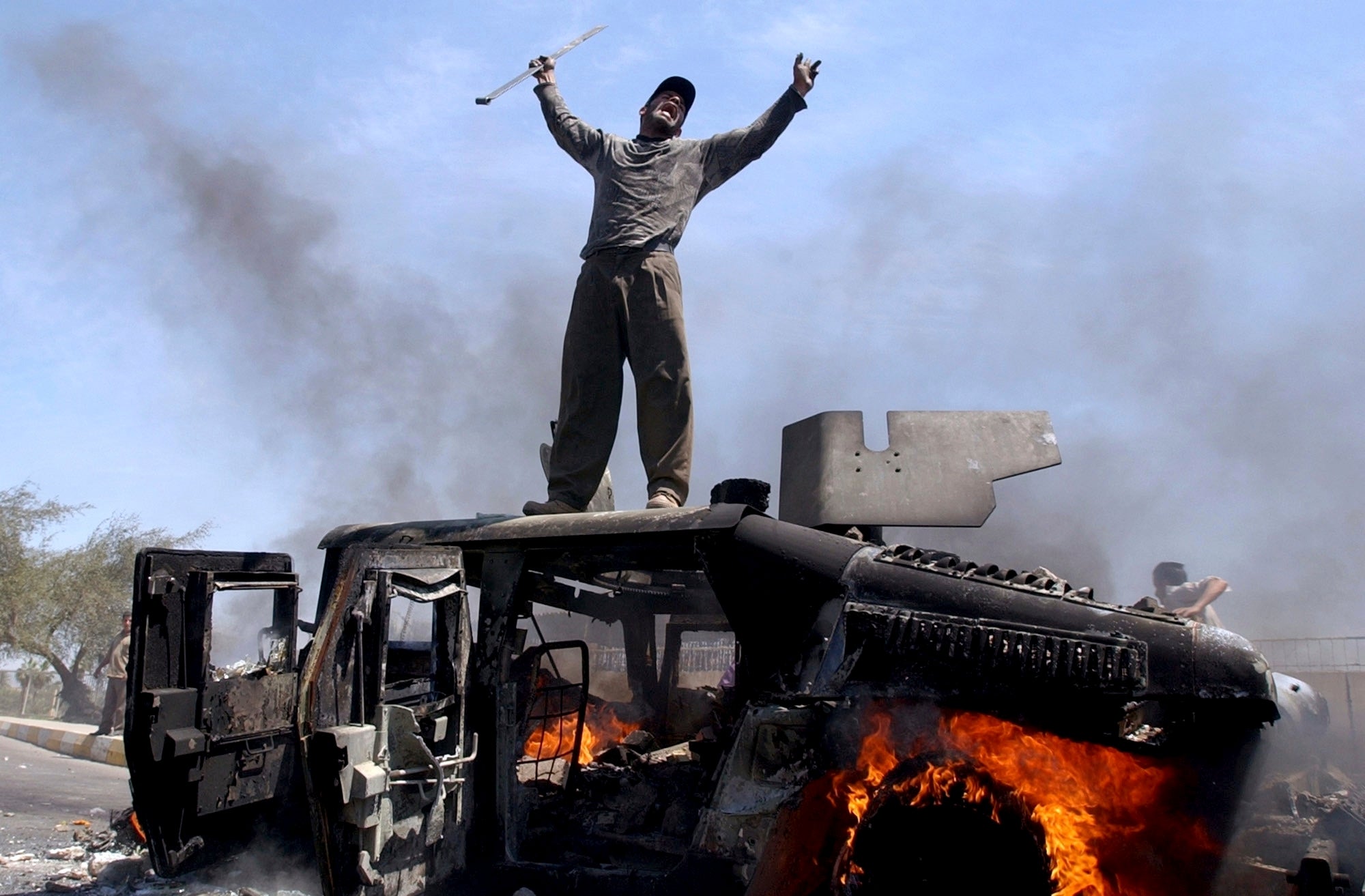I’ve never regretted being one of 16 Tory MPs who voted against the Iraq War
We didn’t trust Tony Blair on other things so why on this? We stuck together – this unlikely rebel troop, writes Lord Deben


Your support helps us to tell the story
From reproductive rights to climate change to Big Tech, The Independent is on the ground when the story is developing. Whether it's investigating the financials of Elon Musk's pro-Trump PAC or producing our latest documentary, 'The A Word', which shines a light on the American women fighting for reproductive rights, we know how important it is to parse out the facts from the messaging.
At such a critical moment in US history, we need reporters on the ground. Your donation allows us to keep sending journalists to speak to both sides of the story.
The Independent is trusted by Americans across the entire political spectrum. And unlike many other quality news outlets, we choose not to lock Americans out of our reporting and analysis with paywalls. We believe quality journalism should be available to everyone, paid for by those who can afford it.
Your support makes all the difference.Iain Duncan Smith was no match for Tony Blair who proceeded to flatter him by including him in what was carefully presented as a privileged secret briefing. He left No 10 as the cheerleader for war.
The public was told that ministers knew much more than could be revealed but lives would be put at risk if they said too much. Together, government and opposition told us that we had to trust those in the know. The Conservatives imposed a three-line whip to support the invasion.
Not that parliament technically had a say. Trade deals and declaring war are the prerogative of the Crown and therefore executive actions of the government, not subject to a parliamentary vote.
However, Tony Blair was forced to announce that Britain would not join with the US if parliament did not agree. At the same time, he reminded MPs that our brave forces would be best served if they had substantial backing in that vote.
Inside the Conservative Party, outside the gung-ho brigade, there was real uncertainty. This was not a left-right issue. Andrew Turner and Edward Lee from the right were aligned with One Nation Tories like Ken Clarke, Peter Ainsworth, and Tony Baldry. What united us was simply that we didn’t believe the story that Britain was threatened by Saddam’s missiles. We doubted he had weapons of mass destruction or the means of delivering them. If we weren’t threatened, then why were we going to war?
There was significant input from those with a service background. Andrew Murrison, the newly elected MP for Westbury, was an active Territorial Army officer and shared with us the scepticism of many of his fellow soldiers. As it turned out, he voted against the war in March and by September had been called up and was patrolling the streets of Basra.
John Baron, another ex-soldier, simply said: “I know what a disaster war is. It should always be the measure of last resort. We are nowhere near that situation now.” That was also the view of John Horam, with strong family ties to the military. His scepticism was fuelled by a belief that the documents presented to us bore all the marks of tweaking by Alastair Campbell, Blair’s PR man.
The issue was how we could vote against the war in concert with the Labour rebels without looking like unilateralists. We had to have an amendment that made clear the reasons for our refusal.
We were of course helped by the fact that by now it was clear that the Labour opponents were a broader church, having been joined by unexpected supporters – notably Robin Cook, who resigned from the government as leader of the House.
That’s where Douglas Hogg, now Lord Hailsham, came in. He drafted the suggested amendment and worked with Labour to get something which we all could support. When it came to it, the Liberal Democrats voted with us but they declined to be involved in the preparations.
By now we knew that there would be a dozen or more who would defy a three-line whip and others who hadn’t quite the stomach but might abstain. Four of our number had resigned their shadow jobs – John Randall, John Baron, Jonathan Sayeed, and Humfrey Malins.
It was particularly hard for the new members to withstand the dire warnings of the whips and our physical voting system serves the whips’ purpose. Richard Bacon well remembers the unexpected shock which came from having to walk across the chamber – against the press of MPs on his own side – instead of being caught up in the usual gang marching into the Tory lobby.
Still we stuck together – this unlikely rebel troop. We didn’t trust Tony Blair on other things so why on this? President Bush was talking about the importance of regime change, yet there were no plans for the establishment of this new regime. And why just Saddam? There were plenty of other nasty regimes – were we going to set out to topple them all? Britain was not threatened so this couldn’t morally be a Just War.
However, there would be a price to pay for rebellion and, as Ken Clarke was still the alternative leader, I tried to get him to plead another engagement and not vote, as I thought the Tory Party wouldn’t forgive him. He was adamant. “This war is wrong and foolish. I’m voting against it.”
In any case, my judgement of the party was wrong. I went to my own constituency that weekend expecting real trouble, only to find that the right-wing stalwarts who opposed my pro-European views, were the very people who sidled up to me to say: “On this issue, John, you’re entirely right.”
In the end it was 16 of us who voted against the invasion, and 10 years later we held a dinner to remind ourselves that history had proved this heterogeneous set of Tory MPs right. Those still alive will meet again this year and celebrate our differences and the justice of our cause.
The year 2003 was not a good time for the Tories. A second crushing electoral defeat had been followed by the rump of Conservative Party members defeating the MPs’ choice as leader – Ken Clarke – and picking Iain Duncan Smith.
By early 2003, Smith’s lacklustre performance was becoming an embarrassment. We were making no headway and were without any compelling alternative message. That left Tony Blair in a commanding position, able to face down his only real opposition – on the benches behind him. Blair had become the natural ally of President George W Bush.
Like Margaret Thatcher before him, Tony Blair was much influenced by his red-carpet treatment in the United States.
Indeed, his backing for the US was already unconditional as I had found when he banned my asking further written questions about US planes bombing targets in Iraq from their bases in Suffolk.
The Rt Hon John Selwyn Gummer, Lord Deben, was one of a number of Tory MPs to rebel against the party leadership which backed the government’s decision to go to war in 2003
Join our commenting forum
Join thought-provoking conversations, follow other Independent readers and see their replies
Comments